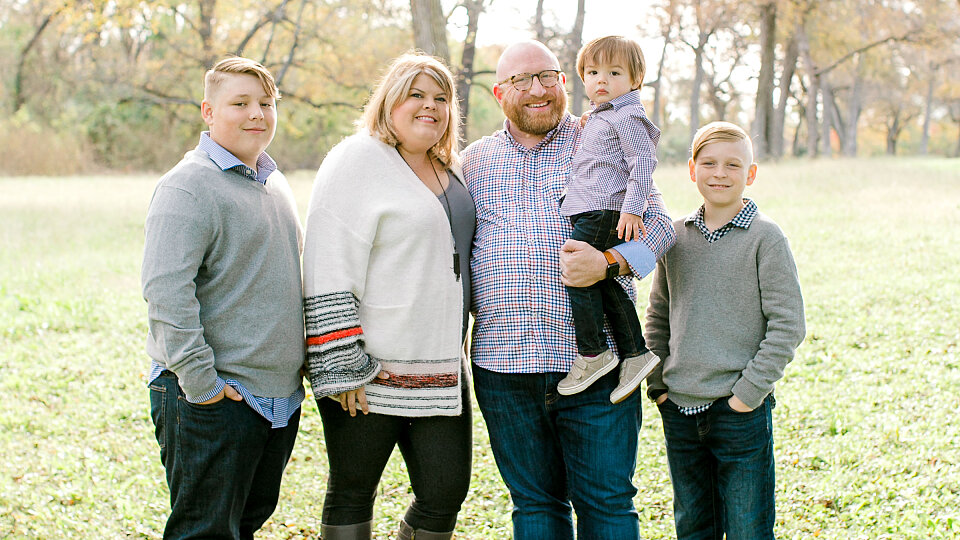Parenting a special needs child with a history of trauma: A story of hope and redemption
I started working in child welfare 20 years ago. During the course of my career, I have received training and would consider myself very knowledgeable about trauma, behavioral intervention and building a secure attachment with a child from a hard place. I have shared this knowledge through training other social workers or foster and adoptive parents for many years.
When my husband and I started the journey of fostering four years ago, I told him he would have to trust the Lord to prepare us for the child he would place in our home. This was hard for him. He, like many husbands, wanted to control things for our family. My husband prayed he would be humble to trust God for the child who would be placed in our family.
I prayed for my husband because I knew what to expect. After all, I have worked in this field for two decades. I have seen almost every situation. I have seen all kinds of different children. I was the expert. I guided my family through the foster care journey with overall ease.
While we were fostering, I struggled with balancing all the appointments and having a full-time stressful career. I didn’t spend much time focusing on what the future was going to look like. I knew being a parent was hard, but I forgot how parenting a child with a trauma history is different.
When our foster son started exhibiting the symptoms of trauma, I was the person whom he directed his frustrations. I cried at the end of the day because my expertise wasn’t enough. He yelled at me. He hit me. He kicked me. Our extended family was stressed, and I knew it was hard for them to have our son around and see what the stress was doing to us.
I realized I needed help. We couldn’t do it alone.
My husband suggested I join a support group. Nope. Not doing it. I can’t go to a support group. I used the excuse of my position and not wanting to interfere with the group’s ability to talk openly. But really it was about me not wanting to admit to other foster families I was struggling.
Then the COVID-19 pandemic hit and I was home with my son every day for three months. I cried every day because I felt so alone, helpless and not equipped to care for my sweet, rambunctious and loving 3-year-old boy. I didn’t allow people to help me. I was closed off because I thought I could do it on my own. I had to get on my knees and humble myself and ask for help.
I joined a virtual support group the next week, and we talked about “giving voice to big emotions.”
“Great, let’s talk about his emotions,” I thought. But the session began talking about my emotions. Ugh.
But this was exactly what I needed to hear. I knew I was not in a good place with God or with my child. And I was not parenting from a trauma-informed way. I needed to identify my triggers so I could manage the emotional response when my child pushed those triggers.
I listened and thought I really need to stop being a martyr and tag my husband in at times. I can be sarcastic and when I am frustrated, this can result in throwing fuel on the fire with my child. But, if I was praying continually like the Bible instructs me then God can help me to build a healthy relationship with my little firecracker. I want him to see me as the calm one so he can learn to self-regulate.
The healing begins as a parent when you accept your child is different from other children. I need to work on reframing how my relationship with my son will look. I must view his strengths in a different way. His challenges got in my way of building a relationship, so I needed to learn how to accept the challenges, but at the same time be his biggest advocate. My goal is that I stay connected to him, for him to feel safe and secure.
So my challenge to other families considering foster care is to be humble. Be ready to trust that God is going to develop you, but you have to be willing to let him work. He will bring the right people in your life to help you with the child he places in your home.
All children are made in God’s image and all children deserve redemption in their lives.
Redemption looks different for every child. Redemption could be teaching them how to regulate their emotions, so when they are returned home to their biological parents, they successfully regulate their emotions and are not a trigger to their parents. Redemption could be teaching a child to socially engage appropriately with other children, so they can live with their aunt and uncle and their two other cousins. Redemption could mean you adopt them, and they have a new future with your family.
Redemption will occur if you say yes to God. Trust his plan.
Visit buckner.org/foster-care-adoption to learn more about helping vulnerable children.
Written by Andi Harrison, regional director for foster care and adoption for Buckner International in North Texas and the Rio Grande Valley. She has been employed with Buckner since 2012. She is married and has three boys. Her youngest child was adopted from foster care in 2018.




Comments